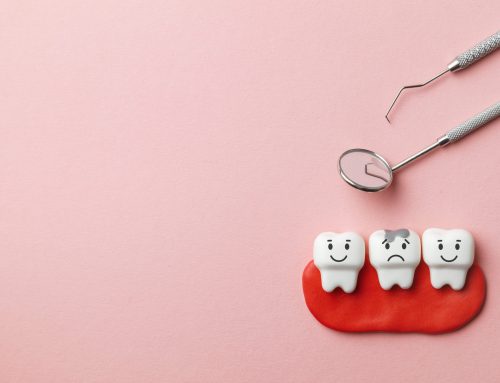Imagine waking up with a sore throat and an odd, unpleasant taste lingering in your mouth. You might dismiss these symptoms, but they could be signs of tonsil stones—a common yet often overlooked condition that can significantly impact your oral health and well-being.
Don’t fret; you’re not alone, and solutions are readily available. In this blog post, we’ll unravel the mystery of tonsil stones and explore effective professional treatments and at-home remedies.
What Are Tonsil Stones?
First things first, what exactly are tonsil stones? Also known as tonsilloliths, tonsil stones are small, calcified masses that form on the tonsils. They can vary in size and are typically composed of bacteria, dead cells, and mucus trapped in the crevices of your tonsils.
Tonsil stones might be the culprit if you’re experiencing symptoms such as bad breath, a sore throat, or difficulty swallowing. Don’t worry; there are ways to tackle these pesky stones.
Causes and Risk Factors
Tonsil stones form due to several factors, and understanding these can help in both prevention and treatment. One primary cause is poor oral hygiene, which allows bacteria and particles to accumulate in the tonsil crypts. Other contributing factors include chronic tonsillitis, large tonsils, and nasal drip.
Certain lifestyle habits and dietary choices can also increase the risk of developing tonsil stones. Smoking, for instance, can exacerbate the condition by promoting bacterial growth in the mouth. A diet high in dairy products also plays a role, as lactose can encourage the formation of phlegm and mucus, leading to stone development. Understanding these risk factors is the first step toward effective prevention.
Can a Dentist Remove Tonsil Stones?
Professional Diagnosis and Assessment
Dentists are well-equipped to identify these stones during a routine check-up. They’ll examine your throat, ask about your symptoms, and may even use imaging tools if necessary to ensure an accurate diagnosis.
A professional evaluation is essential to confirm the presence of tonsil stones and rule out other underlying issues. Sometimes, symptoms similar to those caused by tonsil stones can indicate more severe conditions, so it’s best to consult your dentist to get to the root of the problem.
Removal Techniques by Dentists
Once diagnosed, dentists have several methods for removing tonsil stones. One common technique is manual extraction, where the dentist gently removes the stones using specialized tools.
For more stubborn stones, laser treatment might be recommended. This method uses a focused laser to effectively break down and remove the stones. The advantage of professional removal lies in its safety and precision, ensuring that the stones are thoroughly eliminated without causing damage to surrounding tissues.
Professional Treatment Methods vs. At-Home Remedies
Advantages of Professional Treatments
Opting for professional treatment offers several benefits. First and foremost, the precision of a dentist ensures that stones are removed safely without causing harm to your tonsils. Additionally, a dentist can provide a more thorough cleaning, reducing the risk of recurrence and enhancing overall oral health.
Professional treatment also minimizes the potential for complications, such as infection or bleeding, which can occur during at-home removal attempts. Consulting a dentist is the best route if you’re looking for peace of mind and effective results.
Exploring At-Home Remedies
For those who prefer a DIY approach, several at-home remedies could be explored. Saltwater gargles, for example, can help reduce bacteria in the throat and alleviate discomfort. Simply dissolve salt in warm water and gargle a few times a day for relief.
Oral irrigators, like Waterpik, are also popular tools for dislodging tonsil stones. These devices use a stream of water to flush out debris and stones from the tonsils. Maintaining good oral hygiene, including regular brushing and flossing, can also prevent bacteria buildup, which can lead to stone formation.
Comparative Analysis
When deciding between professional treatment and at-home remedies, it is essential to weigh the pros and cons. While at-home methods can be convenient and cost-effective, they may not always be suitable for severe or persistent cases.
Consulting a dental professional is crucial if you’re experiencing ongoing symptoms or if the stones are causing significant discomfort. A balanced approach that combines professional care with good oral hygiene practices often yields the best results.
Tips for Preventing Tonsil Stones
Preventing tonsil stones begins with good oral hygiene. Regular brushing, flossing, and using an antibacterial mouthwash can help keep bacteria at bay. Staying hydrated is essential, as it promotes saliva production and prevents dry mouth, reducing the risk of stone formation.
Consider incorporating a balanced diet rich in fruits and vegetables, which can improve overall oral health. Limiting dairy products if you’re prone to tonsil stones, may also be beneficial. Small lifestyle changes can go a long way in preventing these pesky stones from returning.
When to Seek Help for Tonsil Stones
While at-home remedies can be effective, knowing when to seek professional help is important. If you’re experiencing persistent bad breath, throat pain, or difficulty swallowing, it’s time to consult a dentist. They can provide a comprehensive evaluation and recommend the best course of action for your particular situation.
Remember, early intervention is key to preventing complications and maintaining optimal oral health. Don’t hesitate to reach out to your dental professional if you’re unsure about your symptoms or treatment options.
Tonsil stones may be a common issue, but they don’t have to be a permanent one. By understanding their causes and exploring both professional and at-home treatment options, you can effectively manage and prevent tonsil stones. Remember, your oral health is essential, and the right approach can make all the difference.
At Somerset Dental, we’re committed to providing personalized and effective dental care solutions for our patients in Calgary. If you’re experiencing issues with tonsil stones or have any oral health concerns, don’t hesitate to contact us. Book an appointment today for a thorough assessment and personalized treatment plan tailored to your needs. Your smile deserves the best care possible!
Have you ever tried any at-home remedies for managing tonsil stones, and how effective were they for you? What concerns do you have about tonsil stones that you’d love to get clarified by a dental professional? Comment below!






Leave A Comment